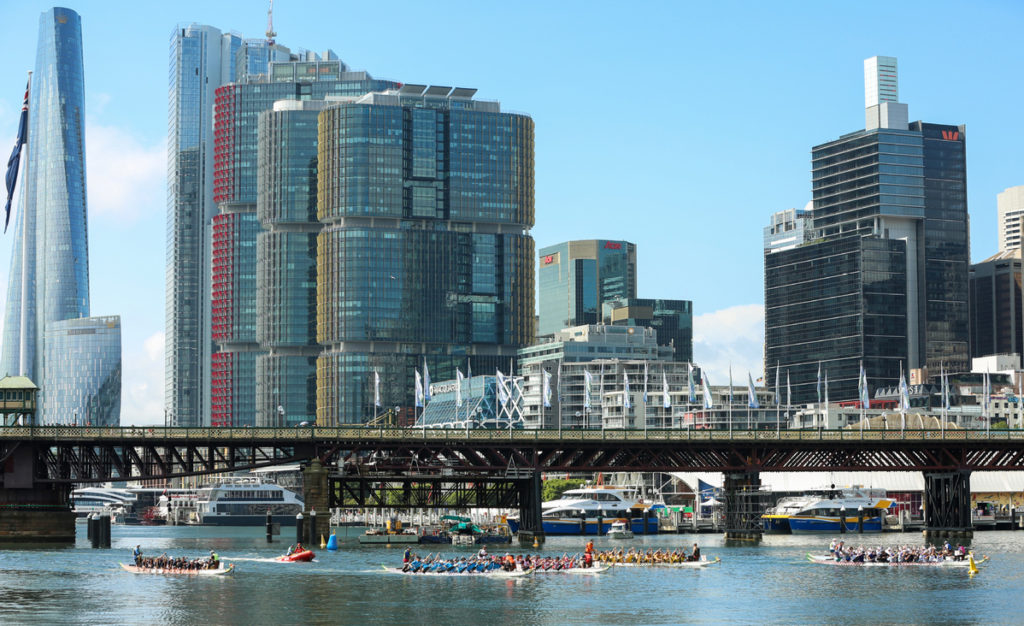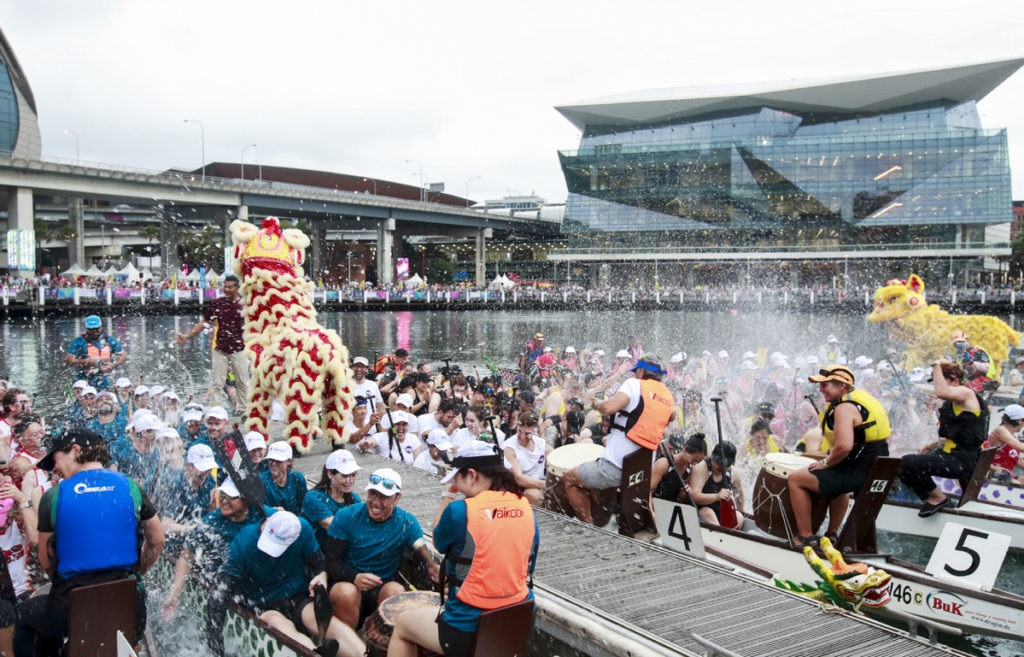SYDNEY — Competitive, social, and inclusive, Chinese dragon boat racing is making a splash in the Southern Hemisphere, with Australia emerging as one of its most vibrant hubs.
As the pinnacle of Sydney’s 16-day Year of the Dragon celebrations, the new-look Dragon Boat Festival recently concluded its 41st edition in the metropolis’ center — Darling Harbour.
With the annual gala extended into three days, more than 3,000 paddlers took to the water in various races, perfectly combining Chinese culture with Aussie traits to ring in the Chinese New Year.
So what is the appeal of this ancient sport, which dates back over 2,000 years, to Aussies?
“It’s probably the best team sport you could ever possibly imagine. It’s an individual sport as well. You can challenge yourself,” Belinda Fowler, a paddler in her 40s, told Sealnews.
Kempsey, a town nestled in the Mid North Coast of New South Wales (NSW), is where Fowler resides, 350 kilometers from Sydney. While driving across the Kempsey Traffic Bridge, Fowler would often catch a glimpse of dragon boat training on the Macleay River.
“I used to think, ‘That looks really nice, and I’d like to do that one day.’ I watched them for years but never really got the courage to do anything about it until we had a French exchange student stay with us for six months,” Fowler recalled.
In 2017, Fowler made a foray into dragon boating while showing the student around their picturesque neighborhood.
“I will never forget the feeling. I still remember it was dusk and we were walking back after being out in the water for the first time. I was all jittery and shaky. I just couldn’t believe that I found this sport. It was so cool,” she said.

In Fowler’s eyes, dragon boating is a “high-performance sport” that can be challenging for even the most physically fit people to master. She also enjoys its social side, where “everybody is dependent on everyone else to work their hardest, do their best, and huddle together”.
“When you get competitive, you want to be training in the gym, going for runs, getting a paddle. There is always a pod of people who are doing these things as well together, building each other up, and encouraging each other,” she said.
Dragon boating also encompasses many cultural traditions, with the thunderous drumbeats of a lion dance, and an ‘eye-dotting ceremony’ — in which the protruding eyes of the dragon head on the boat are dotted — adding to the festival atmosphere at the harbor.
“It was a really fun, amazing and emotional experience,” said Fowler. You may think ‘Oh, why would that be emotional?’ It just is because you’re experiencing something that’s part of someone else’s culture and that’s really special to them,” she said.
Jon Hanlon, a Sydney-based acupuncturist, who is a fluent Mandarin speaker, had a different introduction to dragon boat racing compared to Fowler’s.
After finishing his studies in traditional Chinese medicine in Sydney, Hanlon relocated to Guangzhou, Guangdong province, where he worked in a private hospital for seven years.
“I had never heard of it before I moved there. I just had a couple of friends who were training in dragon boating,” said Hanlon. With a natural inclination for outdoor sports, Hanlon joined a dragon boat club, which was made up of a mixture of locals and foreigners.
At that time, he had a basic command of the Chinese language and was taking a Mandarin course at a university. But that didn’t hinder him from honing his dragon boat skills.

“There were Chinese people and people from lots of different countries. The language we used mostly was English on the boat, but it was a mixture. You can learn a lot from watching people. Even if you don’t understand everything that someone says, you can still follow what they’re doing,” he said.
Hanlon and his teammates competed over a diverse range of distances in China, as “it depended on how long the river was”. Due to his love for the sport, he included the character “Tao” in his Chinese name, which means wave.
In January 2020, he returned to Sydney but didn’t part ways with dragon boat racing. Since then, he has been paddling for Sloths, one of Sydney’s premier clubs, and has also represented New South Wales and Australia in numerous events.
“It makes me feel strong. And I like it because it is a team sport. So you’re doing something that you can meet new people and have fun from doing the sport together,” he said.
With more than 3,000 members and over 60 clubs, New South Wales accounts for the bulk of Australia’s dragon boat community.
“Like any sport, we lost membership during COVID. But dragon boating is one of the few sports that has recovered in its membership since COVID in NSW,” said Dragon Boat New South Wales director Chen Li.
“In terms of membership numbers for this season, we’re back to where we were before COVID and we’re growing in our participation at events and also with our membership,” she said.
It was through a work event that Chen’s interest in dragon boat racing was first piqued. “I just joined to find something to do after work and to make new friends. I’ve been paddling since 2014,” she said.
She describes dragon boat racing as “probably the most inclusive sport that you’ll find, no matter what shape, size, age or culture you’re from”.
“There is always a spot for you in the boat. You can be 50 kilos or 60 kilos, you can be the drummer or sit on the front or the very back. Or you can be someone very strong and powerful and become a power engine in the middle of the boat,” Chen added.
More and more young people are joining in the fun. Fowler’s son, Sam, is among them.
“From my experience coming from a regional area, there are not many young people that were involved in the sport. Sam started paddling when he was 12. He is 17 now and has progressed through the ranks. He has been a regional paddler, a sweep. He’s been in the state crew and is now selected for Auroras, the national team,” said Fowler.
She expects to see the junior ranks continue to grow, especially given the sport’s emphasis on teamwork.
“Younger people are being attracted to the sport, particularly in metro areas where there is a higher density of population, rather than in regional areas that tend to have an older demographic,” Fowler added. “But I feel the dragon boat time is coming and people are starting to take a look at this from a fresh perspective. It’s a great sport.”


